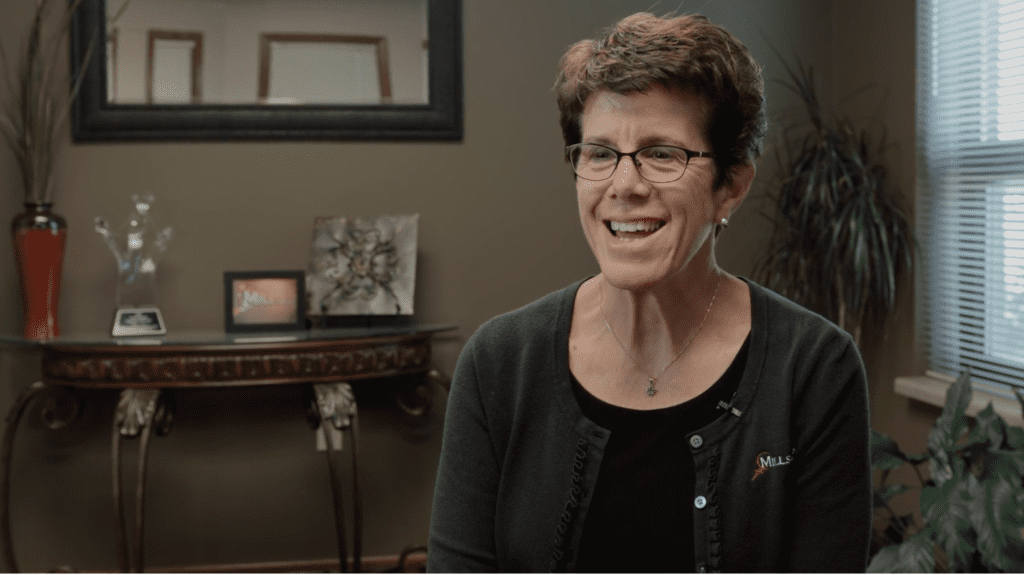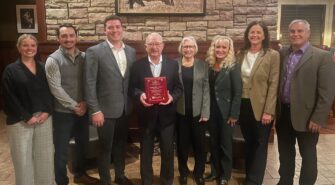3 Family Businesses Honored with Awards from Prairie Family Business Association
Recent News
The end of the year is a great time for taking stock of your business and looking toward the future – especially if you’re a family business.
That often takes the form of a family meeting. And while they can be extremely useful, they also can present challenges unless you take strategic steps along the way.
Mary Jo Minor, the second-generation CEO of Brookings-based Mills Property Management, is an advocate for family business meetings and holds them regularly in her organization.

She agreed to share some lessons learned and best practices to help others.
How does your company approach family business meetings, and how has that changed over time?
We’ve had family business meetings for years, beginning with my father’s generation, and they have changed over time. Originally, our meetings mostly were tied to estate planning, and I think expectations were different for different people attending, and we didn’t take the time to go over what the real purpose was or what people were looking to get out of the meetings. It was primarily from a legal and accounting perspective and didn’t take into consideration work-life balance and other needs and wants. Our business is now in its second and third generations. The only ones involved in our business meetings are the owners, which include my daughter and daughter-in-law. But then we also have meetings that are for all family where it’s more of a general overview of the business and a chance for all of us to ask questions both about the property management business and any other ventures we’re involved in, and that has worked well.
If a family business has never had a formal meeting or has few of them, what do you recommend for the basics? Are there some settings that are better than others? How long should these typically be?
The leading generation should strive first to ensure the rest of the family understands the big picture – the structure, the ownership – that’s a very valuable thing to bring to the table. Be careful not to get into day-to-day management with those who aren’t directly involved in the business. And don’t hold this meeting at the dinner table. Don’t do it at the family home. Make home be home with happy family memories. Rent a conference room, or ask your banker or insurance agent if you can use a conference room, which makes it very professional. And if you have a facilitator or bring your accountant or lawyer, that brings a lot of credibility back to it. Anytime you go over 2.5 hours, you do start to just get full of information. I’ve been in meetings where we were supposed to meet all day, and after lunch we realized we don’t make as good of decisions because there’s too much going through your mind. It’s better to break it up with a little fun. I’ve heard of families meeting until 1 pm. and then go golf. And then meet again the next morning, and do something else fun as a family. That’s a good plan.
What are some of the elements you’ve found that contribute to an effective family meeting?
Always know what your desired outcome is, and let everyone attending understand what the objective is. Is it just education, or is it because there’s an opportunity or because family already is working in the business and knows the business? This will vary greatly depending on who is included, their stage in life and their involvement in the business. If they’re younger family members considering future opportunities, talk about the kinds of jobs you have and what the tasks are and what personality types seem to be a fit, but underscoring it’s a job and work and responsibility. Make sure you communicate we have other employees we’re responsible for. And it’s always good to discuss why it’s important that the core values of the family get translated into the core values of the business.
And what about on the flip side? What should families be mindful to avoid that could cause pitfalls in a meeting?
One thing I did wrong was hiring a facilitator when my kids were still in school. I wanted them to understand business, and some of them didn’t know exactly what the end goal was and maybe I didn’t either. It’s all about expectation and outcomes. At the beginning of every meeting, state the purpose for the meeting and restate the goals and be sure everyone felt the purposes were achieved. Did you learn about the business? Do you have further questions? And if I’m the child attending with further questions, there’s an opportunity to address that. And moms and dads have to be open to talking about hard subjects. What is the retirement plan? And they may not know. But they should be prepared to have those conversations. And don’t just have one meeting and call it done. This needs to be a continual commitment to communication. The other pitfall is having a meeting every quarter, for instance, but with no goal or duties or next steps.
Sometimes families struggle with who should actually be included in a family business meeting. Who do you suggest?
Again, this is clearly a case-by-case basis, so it will vary depending on your family’s unique situation. But I would generally start off smaller, and you can always add. It’s hard to uninvite people. We’re at a point where our extended-family business meetings include the sibling group that is part of my parents’ estate, and my spouse generally does not come. When I meet with just the owners of the business – a combination of family and nonfamily – they don’t bring their spouses, and generally their spouses are involved in other things. But it’s important to be open, too, so maybe that becomes a separate meeting you do every year or every other year where the broader family is invited to a Q&A session with set goals and expectations for the conversation.
Who have you found is the most effective person to run the meeting? Can or should a family member do it, or is an outsider generally best?
My opinion is an outsider is best. Even in other families I’ve seen with strong lead generation people, it intimidates people from speaking up when dad or mom just runs it. You can look to accounting or legal professions, but you also might benefit from a trained facilitator who comes from a more global perspective. And if budget is a consideration, you can always call up a successful family business and ask a member of their lead generation to come to your family business meeting just to get you started. Prairie Family Business Association is a resource you can look to for referrals, both for willing family businesses and facilitators.
Are there pieces of advice you’ve received that have helped you in your own family meetings that you might like to pass along to others?
The biggest takeaway is setting expectations for why we’re having the meeting, presenting what you want to present and making sure you accomplish that and have a system for taking further questions or following up. Having meetings for the sake of meetings or because you think you have to as a family business is a big mistake. Don’t do it just to do it without organization or objectives. You’ll end up way, way worse off.



